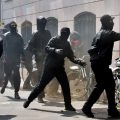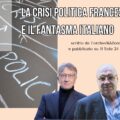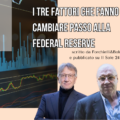On March 23, Lee Kuan Yew passed away. This was a man who—thanks to a mix of rigor and long-sightedness, freedoms conceded in tiny increments, and effective public interventions—transformed the small Chinese enclave into a rich, dynamic, and modern city-State.
Despite being the leader of a great nation, Lee Kuan Yew has earned himself a relevant place among the icons of posterity. Commenting on his death, Obama defined his as “an authentic giant of history.” It’s difficult to deny the role that the founder of modern Singapore had on the after war period; international recognition of his authority is due; keeping a distance from his compatriots’ composed yet felt sentiments is unjustified. Facts caused this tribute, while his integrity consolidated them.
Lee Kuan Yew—ethnically Chinese, Malay-speaking, Oxford educated—became a citizen of a country he invented. He passed through the dramatic years of the British colony’s end, the unification with Malaysia, and the successive expulsion as a protagonist.
At the time, LKY was a young lawyer who defended the patriots and laborers. When he became the prime minister of Singapore 50 years ago, few believed in the survival of the city-State. A very small territory completely lacking resources, poorly industrialized, and chronic water shortages rendered Singapore weak and vulnerable. In any case, the biggest problems were its geographic position and international situation.
Singapore is a Chinese enclave (76% of the population) surrounded by Muslim countries (Malaysia and Indonesia), where the Chinese population holds economic leverage but has frequently been harassed by local governments. For Singapore, fears of a military conflict to acquire its talents and prosperity were (and still are) a daily nightmare. The Cold War added even stronger tensions in an area of the world dominated by the Vietnam War, communist guerrillas, and the massacres of the “Year Lived Dangerously” in Indonesia.
After winning the first elections with a triumphal majority—typical of the People’s Action Party—LKY began a style of work that didn’t leave room for misinterpretations: radical decisions, inflexibility toward enemies, and rigid applications of laws were confirmed only by their results. Pragmatism was the North Star, and efficiency was that helm. The ambition was simple and complex at the same time: escaping underdevelopment, creating a strong state, and building consensus on prosperity.
Sides were taken immediately on behalf of the United States and its Asian allies. The alliances with dictators like Suharto, Van Thieu, and Thai generals—none of whom were imitated by LKY—are explained this way, in an effort to block Moscow, Beijing, and Hanoi. In any case, Singapore preserved its integrity without becoming a carefree alcove for US soldiers returning home from Vietnam.
The city lived under the axe of censure, and a merciless judiciary system without antagonist unions. It was a luxury the city-State couldn’t permit if it wanted to attract foreign capital, hide behind the US fleet, and act as a magnet for the rich Chinese diaspora. A society hinging on control and discipline learned that multiculturalism is a resource, albeit it imposed with brusque methods. It wasn’t easy to build a national identity between traditionally hostile ethnicities accustomed to fighting over scares resources.
Singapore grew well and quickly. All of its citizens own the houses they live in, academic achievement is very high, and its finances are in order. Corruption, unemployment, and crime are nonexistent. Cleanliness, efficiency, and the competence of public officials are legendary. The airport, port, and airline are the best in the world, and the country is an ideal place to conduct business according to the World Bank’s classifications.
Singapore surpassed Italy in per capita income many years ago to the point of reaching the highest concentration of millionaires in the world. Its wealth is not due to lucky offshore drilling, but to hard work, avant-garde industries, respect for the environment, and social lives where regulations appear as part of the natural order of things.
Obviously, defects and limits are not lacking, like growing inequalities and the absence of a full democratic society. Liberty is still perceived as a slow conquest, to be conceded sparingly to avoid overdose. LKY kept all of this in mind; he aspired to create a stronger society but considered Singapore as a dockyard, not a paradise. His creation’s growth didn’t follow capitalism’s savage path as much as that of a selective and efficient public intervention. In Singapore, people study industrial policy as well as economic policy; the State intervenes with rigor and foresight.
And yet this small archipelago of 5 million inhabitants was frequently—and for a long time—considered a stranger to the socialist-leaning world. Fashions substituted analysis, as if haircuts, modest public announcements, capital punishment for drug traffickers, and banning chewing gum were more important than growing the GDP, Keynesian interventions, infrastructure, the diffusion of English, and the island’s spectacular skyline.
With delay, it realized that order, protecting the weak, respecting the law, and human rights should be in the treasure trove of democracy and liberalism. Arrogance, if not disrespect, toward a society that towers above most European countries in many respects have prevailed for too long. The international community realized very late Singapore’s success was not a simple mix of low salaries and an authoritarian state. LKY remains the leader and symbol of modern Singapore. His importance will not be tarnished by his proverbial harshness, to whose criticisms he was accustomed. He always responded that it’s not necessary to be politically correct. It is sufficient to be simply correct.

















